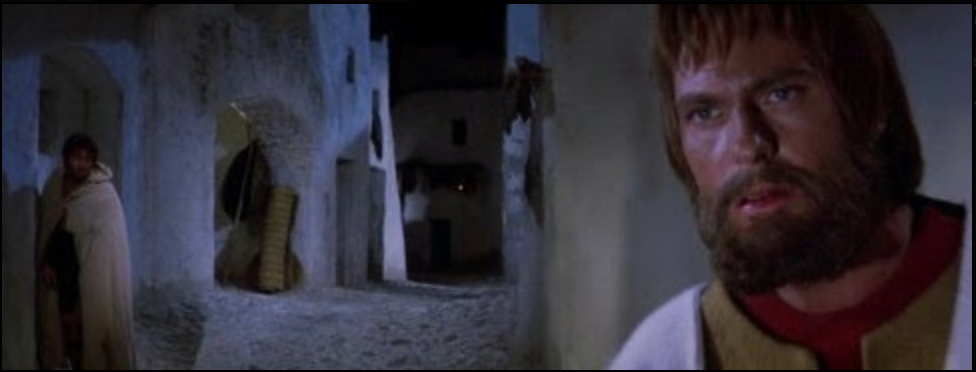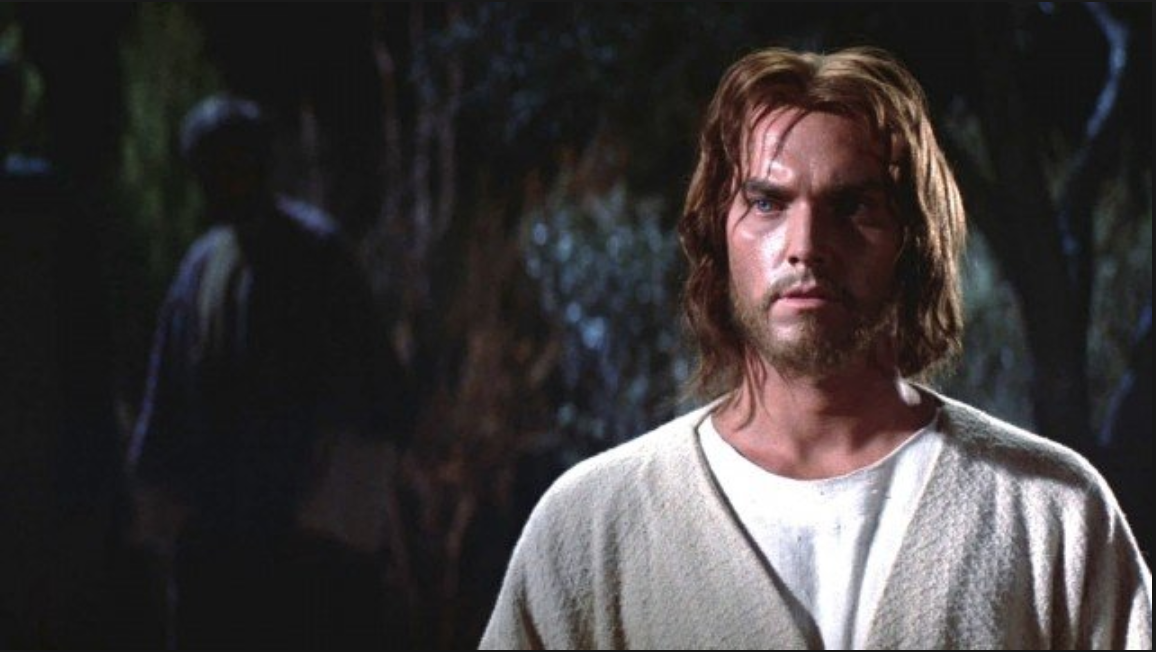A riff about King of Kings from yesterday’s Rip Torn comment thread:
What a strange, compromised in-betweener King of Kings is. Composed according to the rules of a costly, conservative, big-studio Biblical epic (i.e., even the wandering poor wearing studio-finessed wardrobes with perfect hair stylings) but at the same time political-minded and eschewing the usual religious sentiment (except towards the end). It seems to be straining to become something less conventional but without the focus and nerve to really push into that.
Director Nicholas Ray was quite the muscular auteur in the ‘40s and ‘50s, but he was a director-for-hire here. And yet a faint hint of personality emerged in one respect. Ray seemed to regard Jeffrey Hunter’s Jesus as a vague relation of James Dean’s Jim Stark in Rebel Without A Cause. How else to interpret Hunter’s red shepherd cloak + white undergarment matching Dean’s famous red jacket + white T-shirt outfit? But Ray’s bold power days were behind him. King of Kings was a job — he was pocketing a paycheck. You can almost sense a tone of resignation.
Ray fell apart two years later during the making of 55 Days at Peking (’63). Wiki excerpt: “Ray was a tortured individual at the time of the production of 55 Days at Peking. Paid a very high salary by producer Samuel Bronston to direct 55 Days, Ray had an inkling that taking on the project — a massive epic — would mean the end of him and that he would never direct another film again. Ray’s premonition proved correct when he collapsed on set halfway through shooting. Unable to resume working (the film was finished by Andrew Marton and Guy Green), he never received another directorial assignment.”
Young Rip Torn (29 during filming) gave a thoroughly uncharacteristic performance as Judas Iscariot, solemnly invested in playing a devoted disciple according to the accepted mode of earnest, second-banana acting in 1961. As Barabbas Harry Guardino was in his own spear-and-sandal movie, playing a Che Guevara-like mad man insurrectionist, turning on the Italian machismo spigot and using raw bleating lung power to rail against the Roman oppressors.
The only elements that hold King of Kings together are Miklos Rosza’s reach-for-the-heavens score, Ron Randell’s crisp, disciplined performance as a skeptical but compassionate Roman Centurion, and Hunter’s Nazarene — a performance that doesn’t attempt much in the film’s early stages (underwritten, going through the motions) but gradually takes hold during the second half.


